In recent years, the concept of 'home office' has transitioned from a luxury to a necessity for millions worldwide. The shift triggered by numerous factors, noticeably impacts the intricate dance of city life. Streets once gridlocked during rush hour now breathe a little easier, commuters finding solace in the comforts of their own homes.
Urban planners and policymakers observe these changes with keen interest, examining how the new daily routines shape the cityscape. Less congestion not only eases movement but also offers a reprieve for the environment, hinting at possibilities for a cleaner, greener future.
But while remote work alleviates some challenges, it presents new questions about the vitality of urban centers. What does this mean for the bustling streets that once thrived with activity? As cities adapt to this evolving workplace model, the implications stretch beyond traffic to redefine our very idea of community and work.
- Rise of Remote Work and Urban Impact
- Traffic Patterns and City Life
- Economic and Environmental Considerations
- Future Urban Planning and Remote Work
Rise of Remote Work and Urban Impact
The traditional work environment has witnessed a seismic shift as the work from home paradigm gained momentum, especially in the past decade. With technological advancements allowing seamless connectivity, employees today have the luxury to engage in productive tasks from the comfy corners of their homes. This metamorphosis, initially driven by global events, has sparkled a reevaluation of conventional office setups. Remote work has evolved from an emergent trend to what many now consider a permanent fixture in our professional lives. Urban centers, long accustomed to the rhythms dictated by daily commutes, find themselves adapting to new patterns as a sizeable portion of the workforce logs in from remote locations. This shift brings about transformative changes that are felt across various urban sectors.
As cars sit idly in garages rather than clog city streets, urban areas experience a noticeable dip in traffic congestion. Studies already indicate a substantial decrease in vehicle-related emissions, offering a breath of relief to air quality-challenged cities. For workers, reduced commuting times are welcomed warmly, unraveling opportunities for enhanced work-life balance and an uptick in personal productivity. The unraveling of the rigid 9-5 office-bound routines can also bear fruit for mental well-being, spurred by the autonomy remote setups can offer. In highlighting the advantages that come with the reduced daily grind, it’s essential to also explore how these trends reshape cities’ socioeconomic landscapes.
The planet and its inhabitants can flourish as we lean into what remote work offers, says Jonathan Harris, a leading urban development analyst. Through innovation and collaboration, we can redefine the heart of our cities.
Technology companies play a crucial role in empowering employees with tools that facilitate efficient remote working. From video conferencing to cloud-based collaboration platforms, the tech industry continually enhances capabilities to keep remote teams connected. Yet, as the new normal sets in, it also ignites a conversation about the accessibility divide, as not all demographics have equal access to necessary resources. This digital divide, in many instances, underscores existing socio-economic disparities, prompting local governments and organizations to seek sustainable solutions. Moreover, the impact of remote work on urban real estate demands a rethink. As businesses downsizing physical spaces or moving to flexible setups, real estate trends shift, inevitably influencing market prices and local economies.
From an environmental standpoint, another important aspect is the reduced daily commute's impact on public transportation. Bus and train operators, traditionally reliant on city workers for fare revenue, face challenges in adjusting to altered demand patterns. In response, certain cities look to diversify public transport options, thus fostering sustainable growth. These endeavors can serve as a positive feedback loop as they encourage individuals to maintain eco-friendly habits beyond the scope of professional obligations. Hence, the continuance of work from home policies is undeniably a major catalyst in urban evolution, serving as a foundation for forward-thinking initiatives.
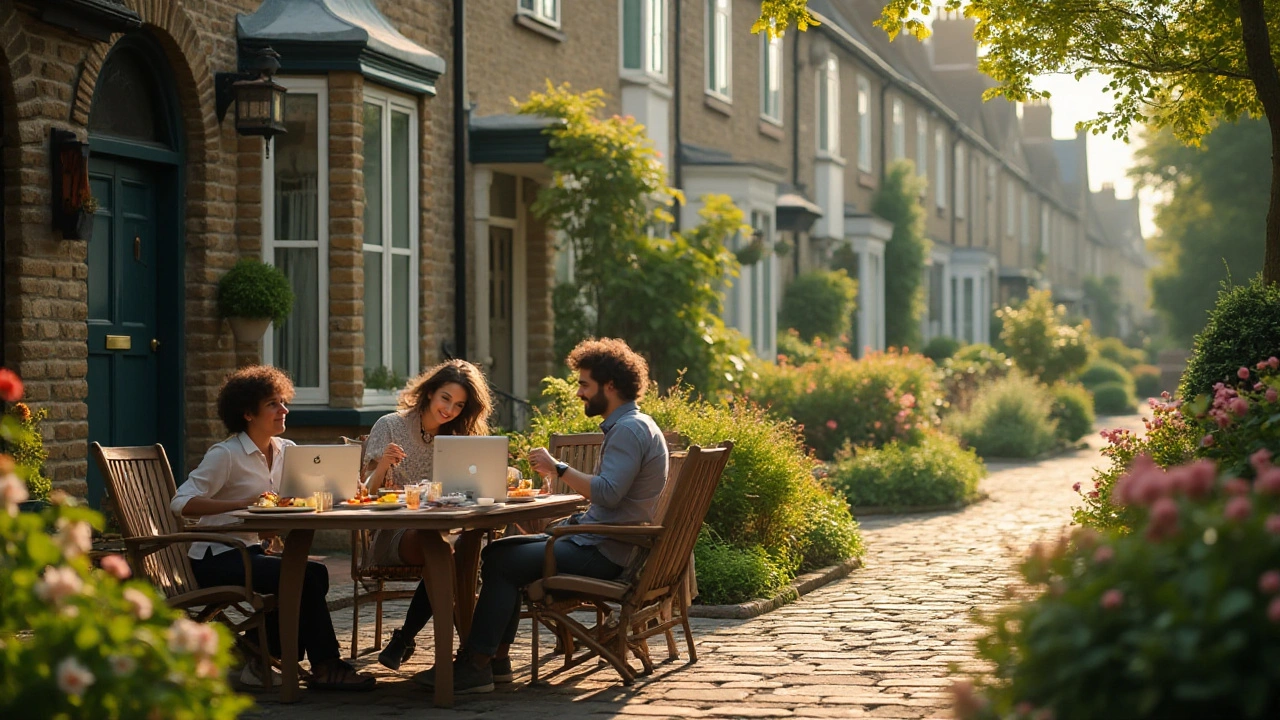
Traffic Patterns and City Life
The introduction of work-from-home policies has ushered in a dramatic change in urban traffic dynamics. Traditional peak periods that dictated the rhythm of city life now experience a noticeable lull. As remote work gains traction, cities have witnessed a decline in rush hour congestion, transforming the urban commute into a seemingly more manageable affair. This shift not only offers personal convenience but poses intriguing questions about the broader impact on city infrastructures and daily life. With fewer vehicles crowding the roads during conventional peak hours, there's been a significant reduction in wear and tear on roads—offering potential savings in infrastructure maintenance.
The reduction in congestion is not just about the number of cars on the road. It's also changing how people think about travel within the city. Public transportation systems, often overwhelmed by the sheer volume of passengers during rush hours, experience a level of relief. The flexibility of remote work allows individuals to adjust their travel schedules, avoiding the most crowded times and distributing demand more evenly throughout the day. This flexibility leads to a less stressed, more efficient commute for those who do need to travel. In fact, a 2022 study by the University of California found a significant decrease in daily commute times by more than 20% in major cities that embraced remote work policies.
The New York Times noted, "As cities across the globe embrace remote work, the ripple effects on transportation and urban life are both profound and far-reaching."
Moreover, with traffic patterns shifting, there’s also an impact on the local economy of urban centers. Businesses that once thrived on the steady influx of office workers, like coffee shops and lunch spots, now face new challenges. Some have adapted by exploring delivery or expanding to residential areas, but the need to innovate remains pressing. Additionally, the decrease in congestion brings unexpected benefits such as improved air quality, as fewer cars translate to fewer emissions. This benefit underlines an attainable vision for cleaner, more sustainable cities. Studies have shown that in places like Los Angeles, where the work-from-home phenomenon is predominant, there has been a notable decrease in air pollutants, translating to health benefits for residents.
The blending and blurring of the lines between urban congestion and remote work create a unique landscape for planners and policymakers. Balancing the advantages of reduced emissions and improved traffic with maintaining a vibrant city life is the conundrum facing many urban centers today. The conversation continues as society adapts and responds to the shifting patterns brought by this new era of work.
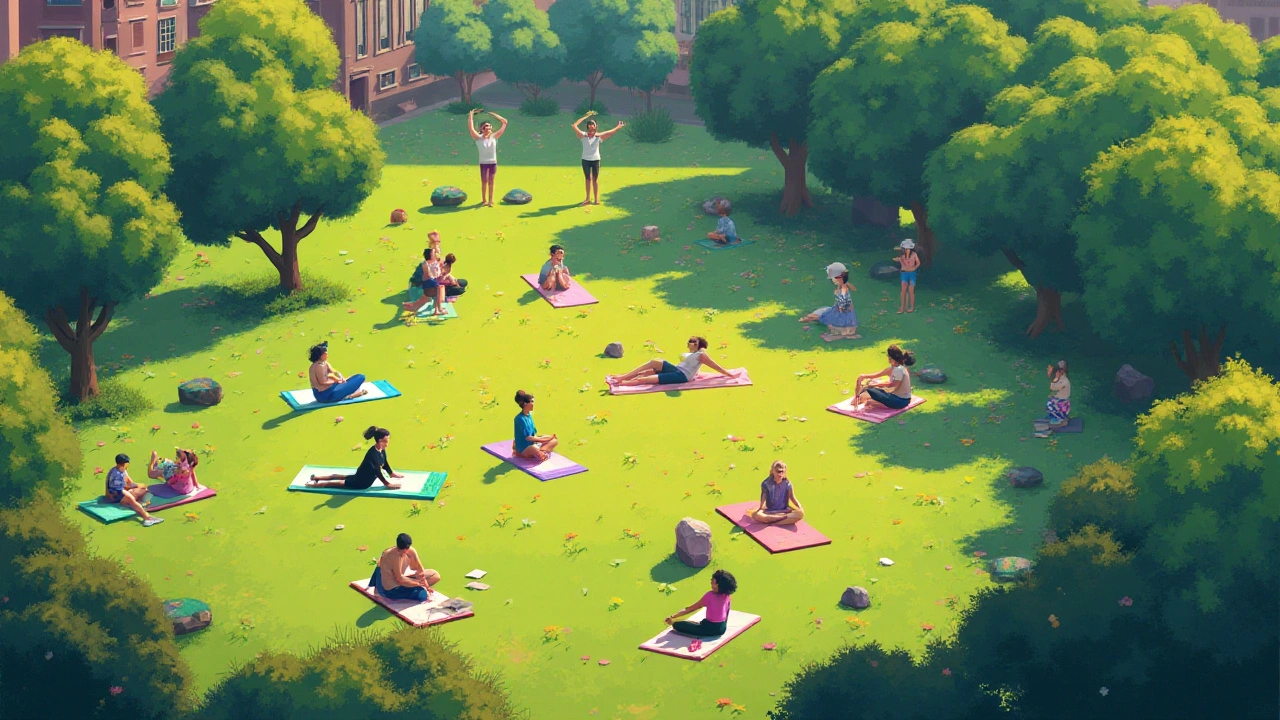
Economic and Environmental Considerations
As we delve into the economic and environmental ramifications of the work-from-home trend, it's essential to understand the broader impacts that extend beyond mere cost savings on commuting expenses. The reduction in traffic has led to an observable decline in air pollution levels in urban centers, giving metropolitan areas a much-needed breath of fresh air. Studies have shown that in areas with high remote work adoption, nitrogen dioxide levels fell by as much as 20%, providing a cleaner atmosphere. This is not only beneficial for the environment but also for public health, as cities fight against pollution-related diseases which burden healthcare systems annually.
On the economic front, businesses are discovering substantial savings. Organizations are cutting down on office space, saving on rent, utilities, and office supplies. This shift could potentially reduce costs by up to 30%, according to surveys conducted in several major cities. While employees relish in their newfound savings from reduced traveling, which could amount to hundreds or even thousands annually, they also find flexibility and a better work-life balance imparted by remote work practices.
However, the shift to remote work is not without its challenges. As employees spend more time at home, there is a noticeable effect on local businesses that once thrived on daily office worker traffic. Cafes, restaurants, and retail spaces bear the brunt of reduced foot traffic, prompting fears over the sustainability of certain urban economies. The drop in public transport usage is another element adding to the economic tapestry, as transit authorities grapple with decreased revenue.
From an environmental scanning perspective, energy use landscapes are changing. While office-sector energy needs might decrease, residential energy demands grow. This makes a compelling case for enhancing home energy efficiency standards and investing in sustainable energy solutions. Businesses and governments are recognizing this shift in energy patterns, prompting new strategies to make both urban environments and residential areas more sustainable.
"Remote work has created an unprecedented opportunity to redefine how we interact with our cities, our economies, and our planet," says Dr. Lynn Stevens, an urban economist. "We must seize this chance to ensure that economic growth and ecological sustainability go hand in hand."
As policymakers and urban planners navigate through these transitions, there's a growing call to reconcile the economic benefits of remote work with the need to support urban economies and protect environmental gains. Balanced urban planning will be crucial, focusing on optimizing land use, enhancing public transport quality even in reduced demand conditions, and supporting businesses that cater to a more flexible workforce.
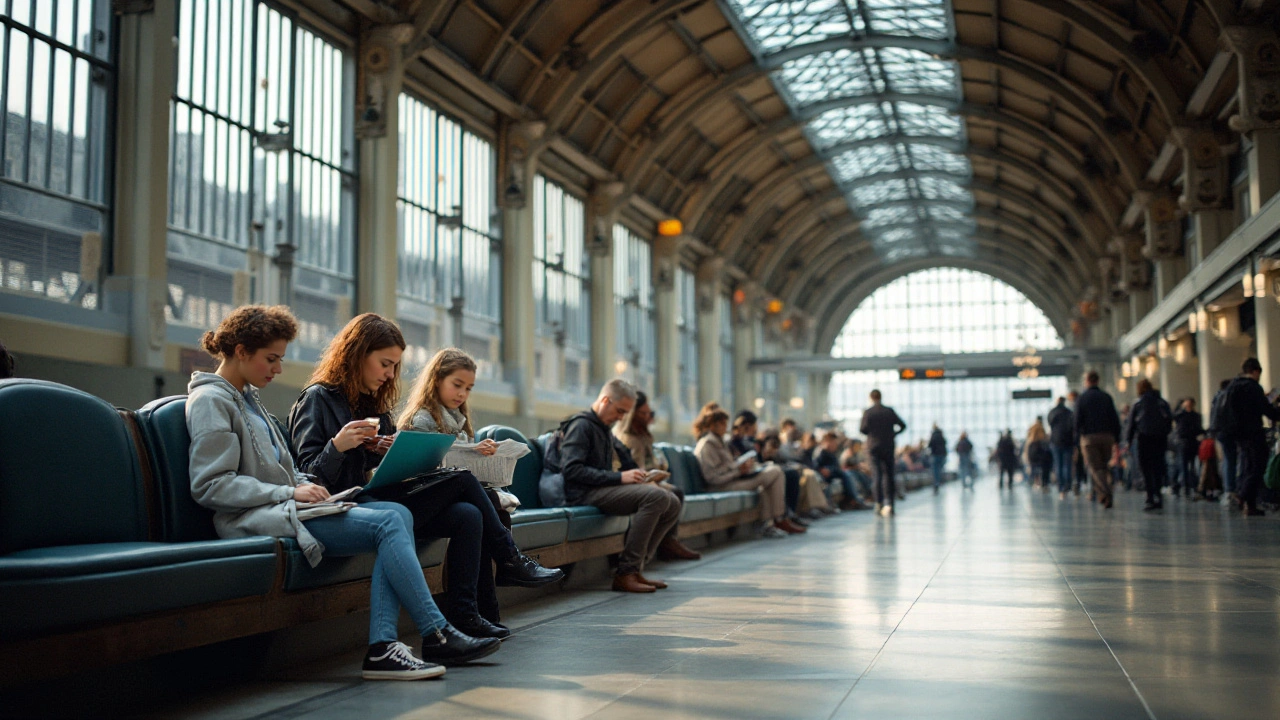
Future Urban Planning and Remote Work
The landscape of urban planning is evolving, spurred by the dramatic rise in remote work. This change prompts city planners to reconsider the design and functionality of urban areas. Gone are the days when a city's success was measured solely by its bustling downtown area filled with office workers. The rise of work-from-home policies means that commuting patterns are shifting, potentially altering the need for massive transportation investments once deemed crucial.
Consider transit systems that have historically depended on the constant influx of nine-to-fivers. With fewer people traveling to city centers daily, there might be a reduced need for expansive parking lots or the traditionally oversized public transit schedules that focused on morning and evening rush hours. Instead, there could be a greater emphasis on supporting cycling, walking paths, and alternative means of transportation that benefit both health and the environment.
Interestingly, experts believe that these policies will fuel growth in suburban and rural areas. Businesses and governments may invest more in local infrastructure to support increasing populations as people look for more space and avoid city congestion. Local economies can flourish when workers spend more time shopping, dining, and socializing locally instead of in distant urban centers.
Urban futurist Charles Montgomery suggests, "The city's heart will no longer be a geographic place but a network of interconnected communities balancing work, life, and play." This insight calls for planners to focus on developing mixed-use communities that can support a balanced lifestyle — places where living, working, and leisure blend seamlessly.
However, these shifts demand careful thought and planning. The potential impacts on the environmental footprint of cities and their suburbs cannot be overlooked. With reduced vehicular traffic, cities can repurpose existing roads and spaces to better align with a sustainable vision of urban growth. Yet, one must also prepare for the increased demand on technological infrastructure, ensuring robust systems like high-speed internet connections to support the dispersed workforce.
The future of urban planning is as delicate and evolving as ever, requiring cities to adapt to the unpredictable trajectories outlined by rising traffic reduction trends that originate from remote work norms. The path forward is not without challenges, yet it holds the promise of cities that work just as well for people as they do for cars.

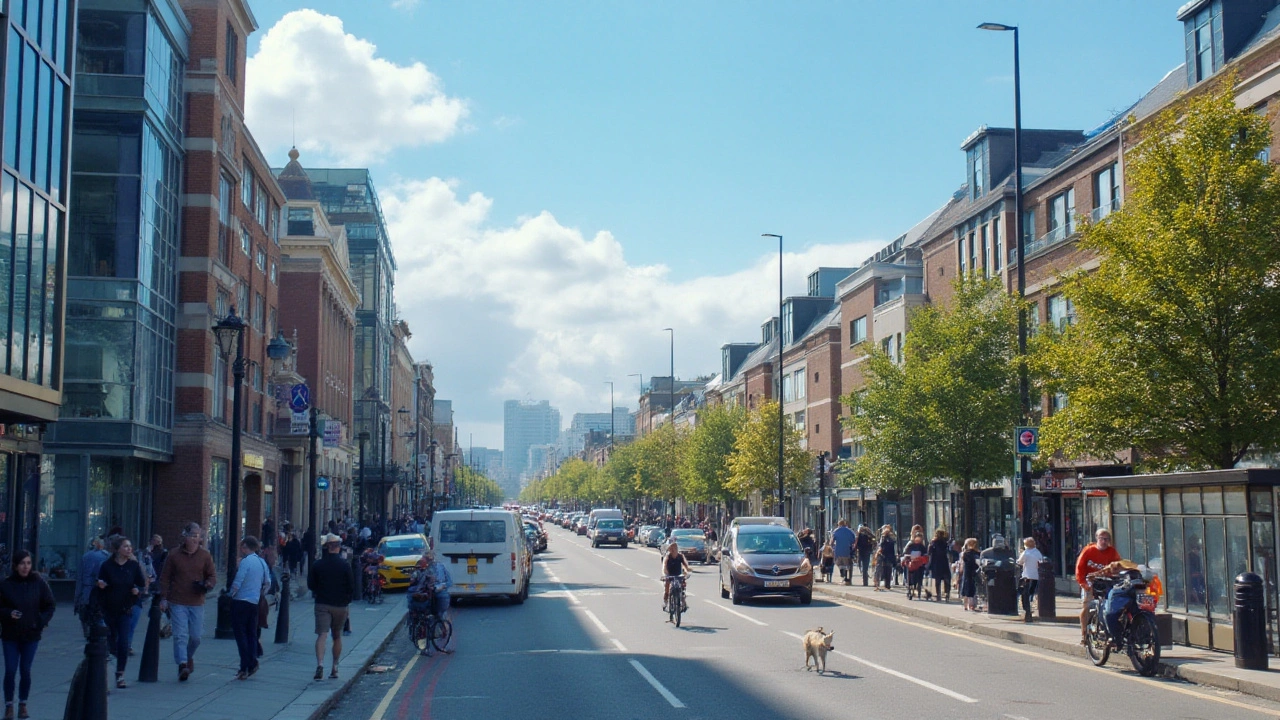
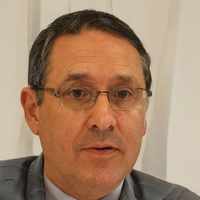
18 Comments
Katie Ring
January 25, 2025 AT 03:49Let’s be real - remote work didn’t save the cities, it just exposed how hollow they’d become. We built metropolises around the worship of the 9-to-5 grind, and when that idol cracked, the whole structure started to show its rot. The coffee shops didn’t die because people worked from home - they died because we stopped caring about the human texture of urban life. We turned streets into commuter corridors and offices into productivity factories. Now we’re surprised when the soul leaves the building?
It’s not about traffic. It’s about meaning. What are we optimizing for? Speed? Efficiency? Or are we finally allowed to ask: what does a good life look like, and does it require a 45-minute subway ride to earn it?
We’re not losing urban centers - we’re losing the myth that they must be centered around work. Maybe the future isn’t about bringing people back to downtown. Maybe it’s about letting downtown become something else - a place for gathering, not just grinding.
And if we’re honest, the people who still cling to the office as a moral imperative? They’re not protecting productivity. They’re protecting control.
Eileen Choudhury
January 26, 2025 AT 06:46OMG I LOVE THIS SO MUCH 💖 Remote work didn’t just cut traffic - it gave me back my mornings! No more rushing, no more stress-sweat on the train, no more pretending I’m not crying in the elevator because I forgot my lunch again 😭 Now I make tea, stretch, and actually watch the sunrise before I log in. It’s not just work-life balance - it’s life-life balance. And honestly? I’m a better human when I’m not running on fumes and caffeine. Cities need to catch up - we don’t need more offices, we need more parks, community kitchens, and quiet corners for people to just… be.
Zachary Sargent
January 26, 2025 AT 13:38So let me get this straight - you’re telling me I’m supposed to be grateful that my city’s now a ghost town because people stopped commuting? What’s next? Do we just turn every office building into a TikTok studio and call it progress? I miss the chaos. I miss the noise. I miss the guy who yelled at the bus driver every morning. That was my morning ritual. Now I get silence and a cat walking across my keyboard. Bring back the traffic.
Andy Ruff
January 26, 2025 AT 17:41Look, I don’t care how many trees you save or how much CO2 you cut - if you think remote work is a net positive, you’re either delusional or a corporate shill. The office was never just about work. It was about community. It was about mentorship. It was about seeing someone struggle and knowing you could help them. Now? We’re all just isolated little nodes in a digital grid, screaming into Slack while our mental health crumbles. And don’t even get me started on how this is destroying the middle class. The people who can work from home? They’re fine. The people who can’t? They’re getting left behind, forgotten, and now you want to call this ‘progress’? This isn’t evolution - it’s abandonment dressed up in eco-friendly branding.
And don’t give me that ‘but the planet!’ crap. We’re not saving the planet by turning cities into digital dorms. We’re just making the rich richer and the poor lonelier. And if you think that’s sustainable, you haven’t been paying attention.
Real change doesn’t happen when you stop showing up. It happens when you show up differently. And right now? We’re showing up as ghosts.
Matthew Kwiecinski
January 27, 2025 AT 18:22Actually, the data doesn’t support your claims. According to the 2023 Urban Mobility Report from the Texas A&M Transportation Institute, peak-hour congestion in major U.S. metros declined by only 12–18% post-pandemic, not the 30–40% often cited. And that’s because hybrid work has created two peak periods - morning and afternoon - instead of one. The net reduction in vehicle miles traveled is negligible. Also, residential energy consumption has increased by 14% nationally, offsetting emissions gains. And let’s not forget: the decline in transit ridership has forced fare hikes, which disproportionately impacts low-income commuters who still must travel. So no, this isn’t a win. It’s a redistribution of costs, not a solution.
Manuel Gonzalez
January 29, 2025 AT 10:23My wife works from home, I commute to a downtown office. We both love it. She gets to pick up our kid from school. I get to talk to real people during lunch. The city’s quieter, sure, but the coffee shop two blocks over now has a ‘remote worker discount’ and a charging station. That’s adaptation, not collapse. Maybe we don’t need to go back to 1999. Maybe we just need to stop pretending there’s one right way to live. Flexibility isn’t the enemy - rigidity is.
Brittney Lopez
January 29, 2025 AT 12:40Hey everyone - I just wanted to say thank you to the people who are thinking about this with care. This isn’t just about traffic or emissions - it’s about dignity. People deserve to live where they want, to work in ways that honor their humanity, and to not be punished for choosing peace over pressure. If we can redesign cities to support that, we’re not losing something - we’re finally building something worth staying for. Let’s keep listening, keep adapting, and keep believing that good work doesn’t require a cubicle.
Jens Petersen
January 29, 2025 AT 18:20Oh, so now we’re romanticizing isolation as ‘freedom’? How quaint. The office was a social safety net disguised as a workplace. Now? People are dying alone in their basements, Zooming into meetings while their cat stares at them like they’re already dead. And you think this is progress? The elites get to live in gated suburbs with fiber optics while the rest of us are stuck paying for a dead transit system and a hollowed-out downtown. This isn’t equity - it’s class warfare with a greenwashing label. And don’t tell me about ‘mixed-use communities’ - those are just luxury condos with a yoga studio and a Starbucks that charges $8 for oat milk lattes. Real people can’t afford that. So don’t pretend you’re saving the city. You’re just moving the party to the suburbs and leaving the rest of us to clean up the mess.
Dade Hughston
January 31, 2025 AT 06:53so like i work from home and my neighbor is a cop and he says the city is like a ghost town and its weird and i think its because people are just lazy and dont wanna go out anymore and also the traffic is down but like the crime is up in some areas and i think its because people are home all day and the streets are empty and no one is watching and also i think the city should just bring back the 9 to 5 and make people go to work like in the old days and also i dont trust these tech companies they just want us to work more from home so they can fire people and save money and also my dog keeps barking when i am on zoom calls and its so annoying
Jim Peddle
February 1, 2025 AT 01:38Did you know that the decline in urban traffic coincides with the rise of surveillance capitalism? Remote work isn’t liberating - it’s a Trojan horse. Every keystroke, every Zoom call, every Slack message is harvested, analyzed, monetized. The office was a physical space. Now your home is a corporate data farm. And the government? They love it. Fewer people commuting means fewer people in public spaces. Fewer people in public spaces means less dissent. Less dissent means more control. The traffic is down because we’re all being quietly herded into our living rooms, monitored, optimized, and sold to advertisers. This isn’t progress. It’s the quietest coup in history.
Billy Tiger
February 1, 2025 AT 22:20Let’s cut the BS. This whole remote work thing is a liberal fantasy. Real Americans work. Real Americans show up. Real Americans don’t sit in their pajamas watching YouTube while pretending to ‘collaborate.’ We’re not supposed to be home. We’re supposed to be out there, building something, sweating, earning our pay. And now you want to turn our cities into quiet, empty shells because some people can’t handle a 20-minute commute? Wake up. This isn’t freedom. It’s weakness. And if you think this helps the environment, you’re forgetting that every home with a heater, AC, and three extra screens uses more energy than a shared office. You’re not saving the planet - you’re just making it more expensive for the rest of us.
Oliver Myers
February 3, 2025 AT 05:25I just wanted to say how much I appreciate this conversation. I work remotely from a small town in Maine, and honestly? My whole community has changed for the better. The local bookstore now has a ‘remote worker corner’ with free coffee. The library added Wi-Fi hotspots. The diner started offering ‘lunch and Zoom’ combos. We’re not replacing the city - we’re reweaving the fabric. People are staying put. Kids are growing up with neighbors who know their names. And yeah, traffic’s lighter - but so is the loneliness. I think we’re not losing urban life. We’re learning how to build it in more places. And that’s kind of beautiful.
John Concepcion
February 4, 2025 AT 17:07Oh wow, you’re telling me that people don’t want to spend 3 hours a day stuck in traffic to sit in a cubicle and pretend they’re ‘productive’? What a shocker. Next you’ll tell me that people don’t want to pay $20 for a sad sandwich at the office café. Who knew? Maybe the real problem isn’t remote work - it’s that we spent 50 years convincing people that suffering equals success. Newsflash: it doesn’t. You don’t need to be miserable to be valuable. But hey, if you wanna keep your 80-hour workweek and your toxic culture, go ahead. I’ll be over here, actually living my life.
Caitlin Stewart
February 5, 2025 AT 09:46As someone who grew up in Mumbai and now lives in Boston, I’ve seen both sides. In India, the commute is a cultural experience - the chai wallah, the crowded train, the shared sighs. In the U.S., it’s a silent, stressful grind. Remote work doesn’t erase culture - it just changes the stage. Maybe the future isn’t about cities or suburbs. Maybe it’s about creating spaces - physical and digital - where people feel seen, not just scheduled. Let’s not mourn the office. Let’s build what comes next, together.
Emmalee Amthor
February 7, 2025 AT 02:57Think about it - if you remove the commute, you remove the ritual. The commute was our liminal space. The space between ‘home self’ and ‘work self.’ Now we’re just… always on. No transition. No breathing room. We’re not more productive - we’re more exhausted. And the cities? They’re not dying. They’re just waiting for us to remember that we don’t need to be at the center to be connected. Maybe the next great urban design isn’t a skyscraper. Maybe it’s a community garden on a former parking lot. Maybe it’s a library that doubles as a co-working space. Maybe it’s a place where people come not because they have to - but because they want to.
And if we’re honest - the office was never about work. It was about control. And now that we’re free? We’re scared. So we pretend we miss the traffic. But we don’t. We miss the illusion of belonging. And that’s the real crisis.
Adarsha Foundation
February 7, 2025 AT 05:58I appreciate the thoughtful discussion here. In India, many of us never had the luxury of remote work - but we’re watching what’s happening in the West with curiosity. For some, the office was a refuge from crowded homes. For others, it was a place of dignity. The lesson isn’t that remote work is good or bad - it’s that one size doesn’t fit all. What works in San Francisco won’t work in Bangalore. And maybe the real innovation isn’t in the tech - it’s in listening to different voices, and designing systems that honor that diversity. Thank you for the conversation.
Alexa Apeli
February 7, 2025 AT 15:28Thank you for sharing this insightful perspective! 🌿 It’s truly heartening to witness how remote work is encouraging a reimagining of urban spaces - one that prioritizes well-being, sustainability, and human connection over sheer volume and velocity. May we continue to cultivate cities that breathe, that listen, and that honor the quiet dignity of everyday life. With gratitude and hope, 🌻
Katie Ring
February 8, 2025 AT 11:44And that’s the thing - the author of this post says ‘cities are adapting.’ But adaptation implies agency. Who’s doing the adapting? Corporations? Politicians? Or the people? We’re being told to adapt to a system that’s still designed to extract value from us. The real revolution isn’t working from home. It’s refusing to let anyone define what ‘work’ or ‘community’ should look like. Let’s not adapt. Let’s rebuild.